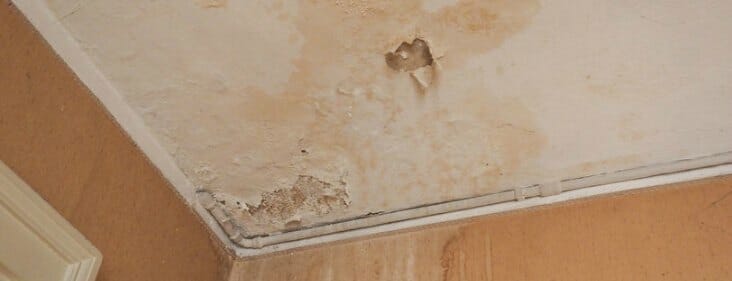Exposing the Key Origins of Leak Problems Inside Your Home
Exposing the Key Origins of Leak Problems Inside Your Home
Blog Article
Presented here down the page you will find lots of worthwhile points all about Common Water Leaks In House.
Leaks not just cause waste of water but can also create unnecessary damages to your residence and also promote undesirable natural development. By recognizing and looking for day-to-day circumstances that cause leakages, you can secure your residence from future leakages and also unnecessary damages.
Instant temperature level adjustments.
Extreme temperature modifications in our pipelines can cause them to expand and also acquire unexpectedly. This development and contraction might create splits in the pipes, specifically if the temperature level are below freezing. If you maintained an eye on how your plumbing works, it would certainly be best. The visibility of the formerly pointed out circumstances frequently indicates a high risk.
Rusty water systems
This might be the reason of staining or bending on your water pipes. If our plumbing system is old, think about replacing the pipelines given that they are at a higher risk of corrosion than the more recent designs.
Faulty Pipe Joints
Pipe joints can degrade over time, resulting in water leakages. If you have noisy pipelines that make ticking or banging sounds, particularly when the warm water is transformed on, your pipeline joints are probably under a whole lot of pressure.
Trespassing roots
Many water leaks begin outside the house instead than inside it. You may observe damp patches or sinkholes in your backyard, and that could suggest that tree origins are attacking water lines creating water to seep out.
Poor Water Connectors
At times, a leak can be caused by loose tubes and also pipes that supply your devices. In case of a water connections leak, you might notice water running straight from the supply line or pools around your home appliances.
Blocked Drains
Blocked drains might be bothersome as well as inconveniencing, yet they can often wind up triggering an overflow leading to break pipelines. Keep eliminating any type of materials that may decrease your drains that might block them to prevent such hassles.
All the above are sources of leakages but not all water leaks result from plumbing leakages; some leaks might come from roof covering leaks. All leakages ought to be fixed quickly to prevent water damages.
Leakages not only cause waste of water however can likewise trigger unneeded damage to your home and promote unwanted organic growth. By understanding and looking for day-to-day scenarios that trigger leaks, you can protect your residence from future leaks and also unnecessary damage. Today, we will look at 6 leak creates that may be triggering your pipelines to drip.
At times, a leakage can be created by loose pipes as well as pipelines that provide your devices. In instance of a water connections leak, you might discover water running straight from the supply line or pools around your home appliances.
Tell-Tale Signs of a Water Leak
The Sound of Running Water
If you’re hearing water running, your first step should be to check your faucets, toilet valves, and outdoor spigots. If everything if status quo, take an exact reading of your water meter and don’t use the water for a few hours. Then, take another meter reading. If there has been no change, that means water is not running (and maybe it’s time to have your hearing checked!). If the reading has changed, however, this indicates that water is indeed flowing and you most likely have a leak.
Wet or Damp Floors
You’re walking across your carpet and suddenly squish—your sock is soaked! The dog doesn’t look guilty and your child swears they didn’t spill anything. That means you’re likely looking at sewer leakage. Now, it’s easy to just soak it up with a towel and call it a day; however, this won’t stop the leak. Ignoring the problem allows moisture to build up, ultimately causing mold or mildew. Not only is this smelly, it can be very toxic and harmful to children, the elderly, pets, and those with weak immune systems. Don’t risk the health of your home and your family—call in a professional to take care of the problem.
Foul Odors
If there’s an unpleasant smell in your home and you can’t locate the source, don’t just light a candle or spray some Febreze. Funky smells are often due to mold and mildew, which spread fast under ideal conditions (optimal temperature and level of humidity). Growth begins within about 24-48 hours, and spores start to colonize in 3-12 days, becoming visible to the eye within about 18 days. If you think the odor is leak-related, get a plumber out as soon as possible to mitigate damage from rapid fungi growth (and rid your home of the foul odor).
Overgrowth in the Lawn
Unless you didn’t fertilize your lawn evenly, a lush patch of grass in a select area of your lawn, or concentrated wet spots, indicate pipe leakage which is acting as a fertilizer. Left untreated, hazardous bacteria in the underground waste will quickly turn into a messy situation, going from lush growth to lawn destruction.
Wall Cracks
Over time, even the littlest of leaks can cause cracks in the foundation of your home and compromise the entire structure. How does it happen? The leak continues hammering away at the same spot in the ground beneath your home, eventually causing it to shift slightly. Now, you’d never feel this shift, but your walls will. This can be a very dangerous situation, so if you’re seeing vertical or diagonal cracking in your walls it’s best to call a plumber right away.
https://www.expresssewer.com/blog/6-telltale-signs-of-a-water-leak-in-your-home

Hopefully you liked our topic on How Fast Water Damage Can Ruin Your Home. Many thanks for taking the time to read our content. Loved our blog entry? Please share it. Let other people find it. Thanks for taking the time to read it.
Overflow? Seek assistance. Report this page